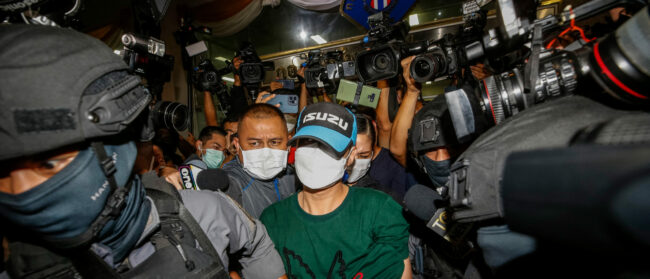Zafar Ahmad Abdul Ghani has been in hiding since he was targeted on Facebook in April last year. Posts accused him of demanding citizenship for fellow Rohingya refugees living in Malaysia. Ghani and his family have since been terrorised by a barrage of death threats and online persecution.
“False accusations spread against me on Facebook resulting in me and my family receiving tremendous [amounts of] death threats, threats of physical violence, harassment [and] insults,” Ghani said.
In Southeast Asia, Facebook has been criticised for allowing hate speech and disinformation on its platform while compromising with dictatorial regimes.
Governments including those in Cambodia, Thailand and Vietnam have leveraged the platform to silence dissent and spread propaganda.
Facebook – recently renamed Meta, although the website’s title is unchanged – has come under increased global scrutiny since whistleblower Frances Haugen leaked a trove of internal reports styled by the media as ‘The Facebook Papers.’
One document revealed 87% of the company’s global budget for classifying misinformation goes to the United States, leaving just 13% for the rest of the world. The effects of the limited resource allocation for monitoring in Southeast Asia are apparent in bigotry and authoritative disinformation across the site.
A Meta spokesperson who would not identify themself over email said budget details are not available to the public. However, the company noted it was “on track” to spend more than $5 billion on safety and security in 2021 through the work of 40,000 employees worldwide “including native Khmer, Burmese, Tagalog, Indonesian and Thai speakers.”
Emerlynne Gil, Amnesty International’s Southeast Asia deputy regional director for research, said that while activists use Facebook to promote human rights, authorities and non-state actors have been more successful at utilising the platform.
“Right now, one outweighs the other in the sense that the state and those sponsored by the state are stronger and more effective in their use of the platform to get messages across,” Gil said. “Facebook is playing a very dangerous game.”
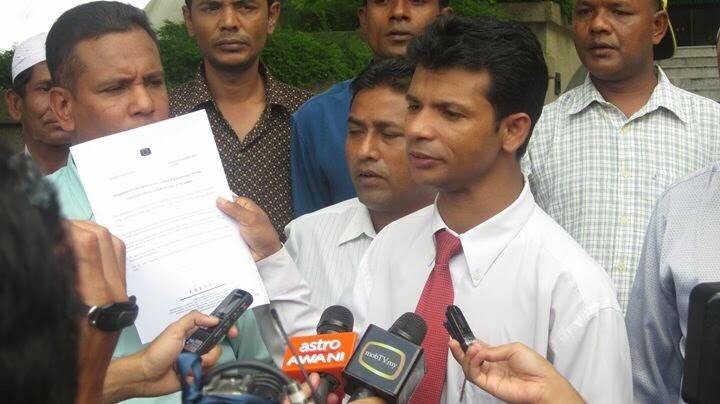
Myanmar hate speech
Facebook has been used to disseminate hate speech toward ethnic Rohingya people since the company’s arrival in Myanmar in 2010, long before a genocide against Rohingya in 2016 and 2017. Since the outset of the Covid-19 pandemic, hate speech against the predominantly Muslim group also has surged on Facebook in Malaysia.
Ghani escaped a military camp in Myanmar in 1988 after being detained for demonstrating at pro-democracy protests known as the 8888 Uprising. He settled in Malaysia in 1992 and established the Myanmar Ethnic Rohingya Human Rights Organisation Malaysia (MERHROM).
False information and hate speech spread against Ghani and he received his first Facebook death threat after accusations spread online claiming he demanded citizenship and equal rights for Rohingya in Malaysia. The misinformation occurred following a sensitive period when Malaysia’s Navy pushed back 206 Rohingya in boats on 16 April 2020 and MERHROM issued a statement on 21 April urging the UN and ASEAN to pressure Myanmar to end genocidal attacks and refugee trafficking of Rohingya and restore their Myanmar citizenship.
Despite multiple reports to Facebook from family, friends and NGOs, Ghani claimed the platform has done little to stop the hate speech and defamation his family continues to suffer 19 months later.
“This condition I live in, maybe I want to die,” said Ghani, adding that Facebook should be accountable for the online attacks. “They are making money but they are letting us die.”
Nickey Diamond, an activist and Ph.D. candidate studying anti-Muslim hate speech in Myanmar, has regularly received threats on Facebook. He was warned by an informant to leave the country after the 1 February coup that installed a military government.
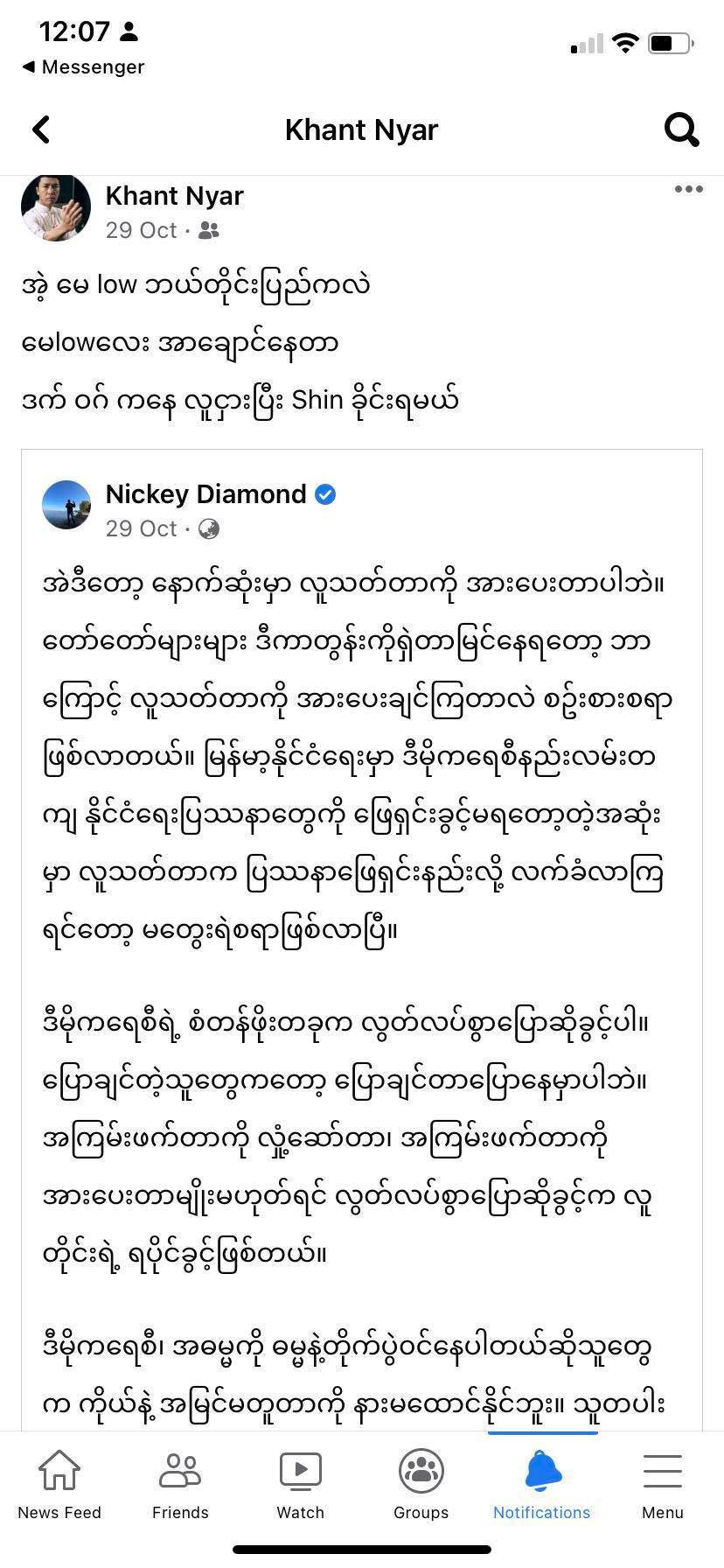
Diamond submitted reports to Facebook after he was targeted again in October, but he said the company’s artificial intelligence technology does not sufficiently detect the nuances of the Burmese language.
“[There have been] a lot of threats and campaigns… for killing me,” he said. “They have a reporting system but killing me is written in a code word that A.I. can’t understand.”
Meta has a team of more than 100 Burmese speakers reviewing content, the company stated. The spokesperson said Meta understands the reality of the “challenges” and remains “proud” of its work: “We have dedicated teams working to stop abuse on our platform in countries where there is heightened risk of conflict and violence.”
Rohingya refugees sued Meta for $150 billion in a class-action lawsuit filed on 6 December in a California court. The complaint alleges Facebook’s arrival in Myanmar “amounted to a substantial cause, and eventual perpetuation, of the Rohingya genocide.”
John Quinley of human rights group Fortify Rights said he believes anti-Rohingya content monitoring has improved, but Facebook could hire Rohingya employees to more effectively monitor the dangerous speech.
“If you’re hiring people in the communities that are being oppressed and… experienced these violations themselves, then they can monitor the content better than anyone because they know the issues better than anyone,” Quinley said.
Thailand’s information operations
The Thai military has been active on social media for years, staging the world’s first ‘cyber coup’ in 2014 by announcing its plan for a government overthrow on Facebook and Twitter.
Since then, Facebook has shown a willingness to comply with the Thai government’s restrictive laws, including blocking access to the popular pro-democracy group Royalist Marketplace at the request of Thai authorities.
Activists also suspect the Thai military of social media subterfuge. In March, Facebook removed dozens of accounts, pages and groups connected to the Thai military’s Internal Security Operations Command. Facebook claimed there was evidence of “coordinated inauthentic behavior” involving campaigns and deceptive networks posting and sharing content targeting Thailand’s southern provinces.
Following a decades-long separatist movement and insurgency claiming thousands of lives, in 2005 Thailand began issuing emergency decrees and elevating military power in the three southern provinces, which have majority Malay muslim populations.
A 2020 Stanford Internet Observatory study found the Thai military’s information operations were used to discredit human rights groups and shape public perceptions of alleged insurgents and those wounded, detained or killed by the military.
Pornpen Khongkachonkiet has been hounded by internet trolls for years. The director of the Cross Cultural Foundation (CrCF), a human rights NGO, advocates for the ethnic-minority Malay muslims. Facebook pages show memes of Khongkachonkiet juxtaposed with bomb carnage from insurgent attacks or on a mock wanted poster.
“My photos… had been [distributed] so widely, even my family members who are not really political had received them on their personal channels,” she said. “That was something that really affected me personally.”
Khongkachonkiet said she believes the memes were part of a coordinated military campaign to undermine her work. Two fellow activists, often targeted in the same memes as Khongkachonkiet, sued the Thai Royal Army and government after the military’s information operations against the southern provinces were revealed in a government budget meeting for the Internal Security Operations Command (ISOC), a military agency focused on national security issues.
Khongkachonkiet said the malicious, violent memes first appeared on Facebook after she co-authored a 2016 report, “Torture and ill treatment in the Deep South,” which detailed dozens of human rights violations by the military and led to criminal defamation charges against the authors in 2016.
While the charges were dropped, dozens of crude and hostile memes still appear on social media, including Facebook, and have served as a public warning to potential allies by placing Khongkachonkiet and CrCF on the military’s “black list,” she said.
Facebook accounts have posted inflammatory memes and content endorsing extrajudicial killings of Malay muslims and branding the deceased as terrorists and criminals. Pro-ISOC pages have hosted live broadcasts about the deaths.
“The objective is to legitimise what the government and military has done to Muslims in the Deep South – arrested, detained and killed,” Khongkachonkiet said. “And the message of those posts is trying to justify the killing.”
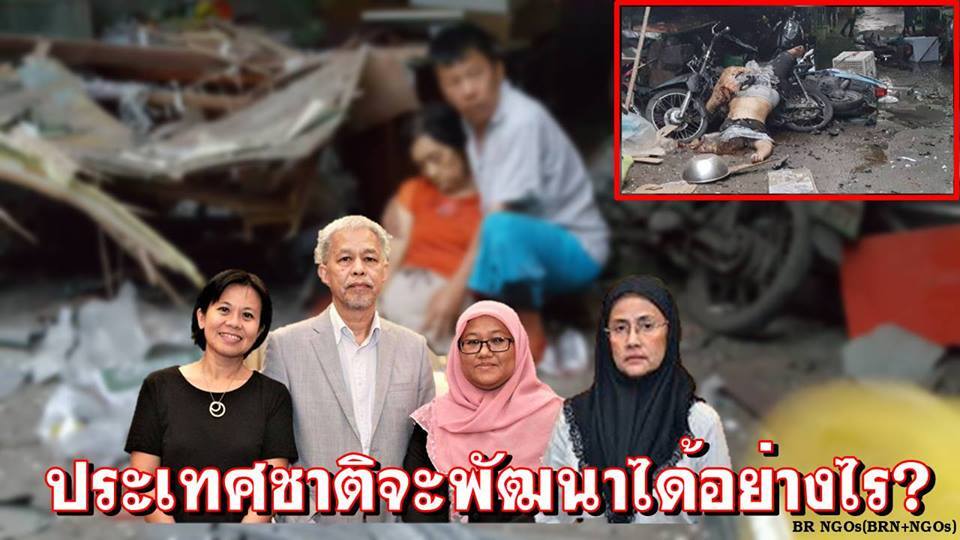
Cambodia’s persecution pipeline
Facebook has played a key role in high-profile arrests of activists and opposition figures in Cambodia.
Several members of Mother Nature Cambodia, an advocacy group known for video posts highlighting environmental issues, were arrested in June and charged with plotting to overthrow the government while documenting sewage drainage into the Tonle Sap river.
Less than a week later, a leaked video of a Zoom call between Mother Nature members was uploaded to YouTube and posted on a Facebook page under a Khmer-language name translated as “Defeat the traitor.” The same account holder previously posted a series of private, internal Mother Nature communications.
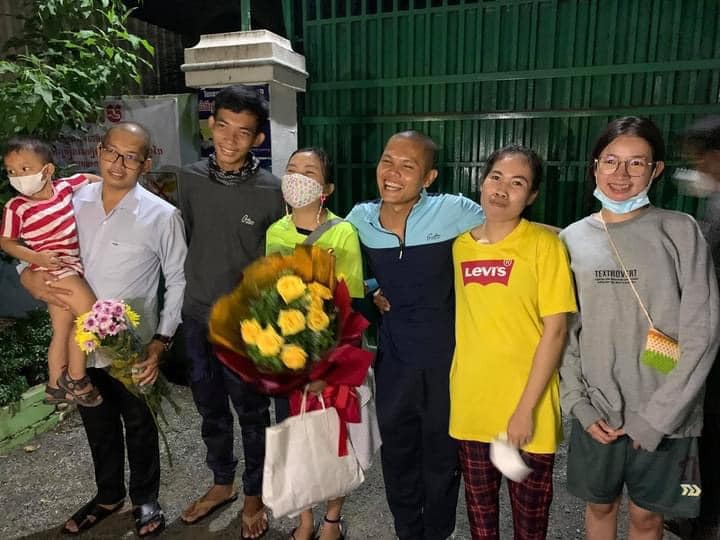
The Mother Nature video call included remarks deemed by authorities to disrespect Cambodia’s king, triggering charges against two activists, Sun Ratha and Yim Leanghy, under the Kingdom’s lèse-majesté law criminalising insults against the monarch. They also faced charges of plotting against the government, along with fellow activist Ly Chandaravuth. Details of the leaked conversation and lèse-majesté accusations were quickly published by pro-government news site Fresh News Asia.
“I’m 100% sure that there are links between these anonymous pages [and] articles on Fresh News written by anonymous writers,” said Mother Nature founder Alejandro Gonzalez-Davidson, a Spaniard who was deported in 2015 and still faces charges in absentia of plotting and insulting Cambodia’s king.
Gonzalez-Davidson said the leaked video call was used as evidence to bring charges against the activists: “It’s almost like a justification. ‘Oh, [the activists] are evil. They did commit a crime. This is the evidence.’”
Am Sam Ath, deputy director of Cambodian human rights group Licadho, said prosecuting Mother Nature activists for the video content is misguided and authorities should focus on identifying the source of the leaked material.
“The person who hacked into the meeting was wrong. They should have arrested that person instead of the group of people [from Mother Nature],” Sam Ath said. “You can’t copy or film video calls without permission. People have the right to privacy in their communications.”
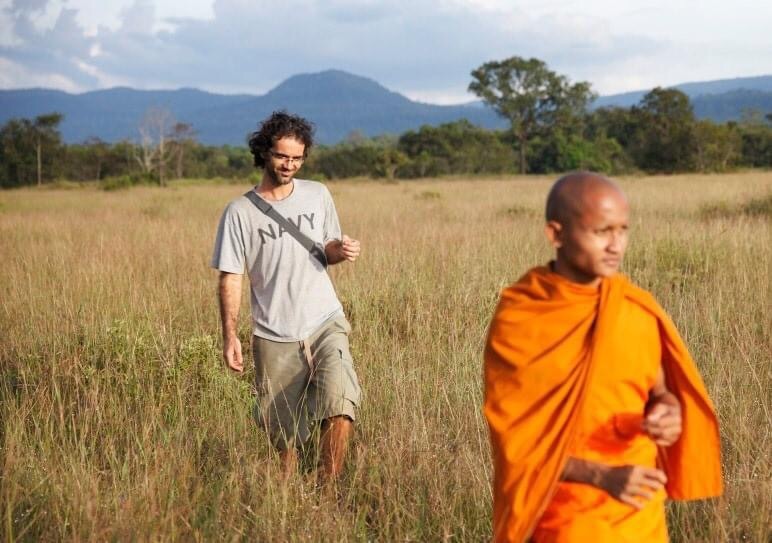
Gonzalez-Davidson shared a screenshot of an exchange with Facebook in which the company said the post “doesn’t go against any of our Community Standards” and would not be taken down. The activist sought help from Amnesty International, which contacted Facebook and led to the company removing the video.
Yet the anonymous page remains active on Facebook and the clip was reposted in September, although the video was removed again after the Globe contacted Meta and requested comment.
The three Mother Nature activists were released on bail in November, along with three other activists who had been in pre-trial detention since September 2020. They are awaiting trial.
The case is not the first time anonymous Facebook pages have leaked information used against activists and opposition figures.
Audio recordings of intimate phone calls between Cambodian opposition figure Kem Sokha and a young manicurist were posted on the woman’s Facebook page after it was hacked in 2016. The fallout led to the incarceration of several human rights workers accused of bribing the woman and forced Sokha into hiding for months.
The New York Times detailed how Cambodian government employees fabricated evidence to smear activist monk Luon Sovath. Using fake Facebook accounts, the employees posted a doctored video claiming he had slept with several women, violating his Buddhist celibacy vows. The human rights advocate fled the country to avoid arrest on rape charges.
Those cases and numerous arrests of people for allegedly inciting unrest through Facebook posts have convinced Gonzalez-Davidson of the company’s capitulation to the Cambodian government under prime minister Hun Sen.
“Facebook is definitely allowing its platform to become one of the most important tools of the Hun Sen dictatorship to monitor, to threaten people who express their views democratically,” Gonzalez-Davidson said. “It’s by far the most important tool of propaganda.”
Facebook should have more Cambodian staff who understand the Khmer language and its cultural nuances and context, enabling the company to proactively respond to violations of its community guidelines, he said.
A team of native Khmer speakers monitors Facebook content, according to Meta, although the company did not specify the number of Cambodian employees working on the site, the primary form of social media in a country of more than 16 million people.
Vietnam’s cyber army
At least 10,000 Vietnamese soldiers, collectively known as Force 47, build pro-state Facebook groups and attempt to silence online criticism of the communist country’s single-party government. Democracy advocates and researchers have said propaganda spread on Facebook by Force 47 qualifies as misinformation.
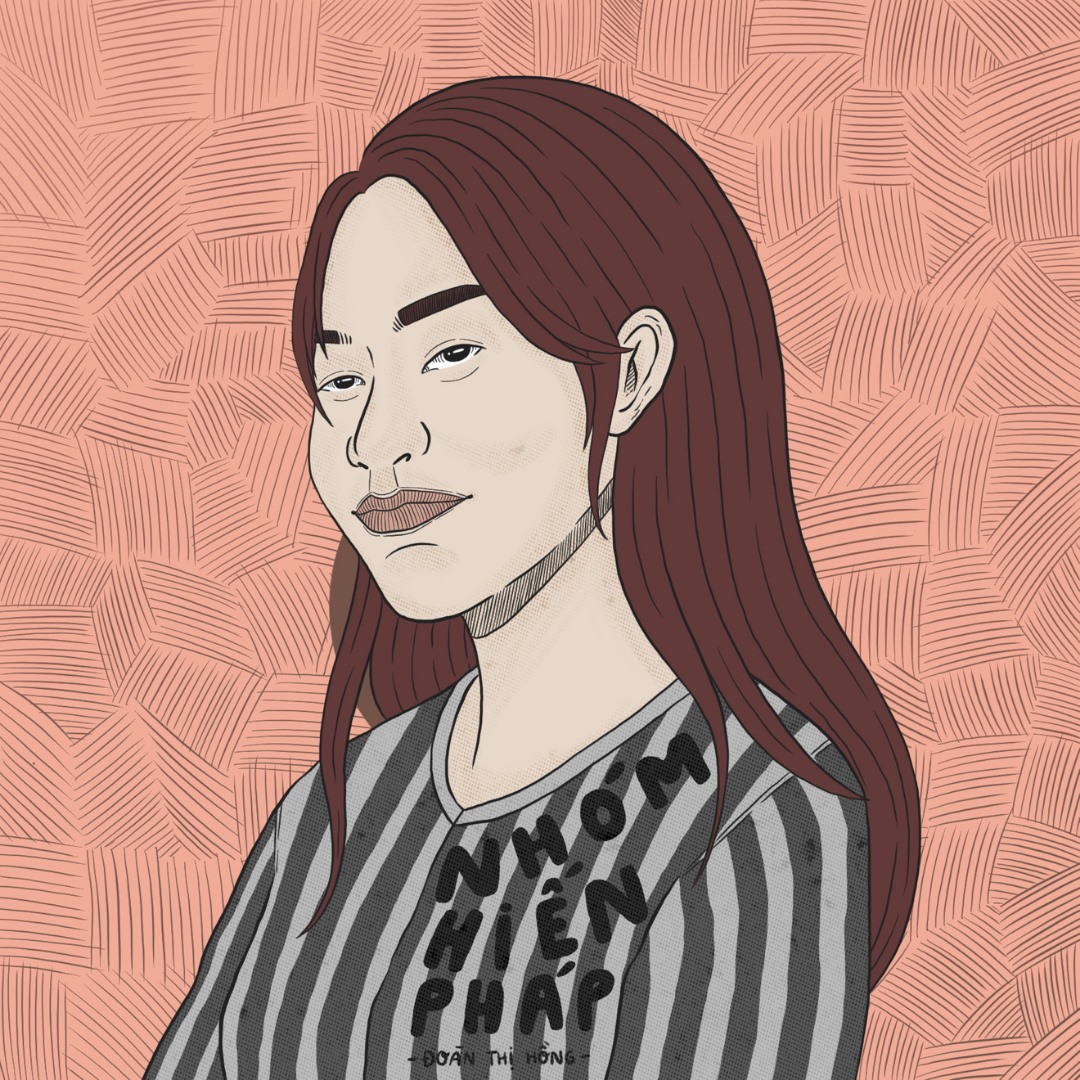
The “cyber-army tactics” include mass reportage of posts, troll army pile-ons in comment sections and account hacking, according to Will Nguyen, a Vietnamese democracy advocate.
Falsely notifying Facebook that a user has died is another method the government uses in attempts to remove the accounts of those deemed “anti-state,” according to a November report from non-profit organisation The 88 Project.
Facebook removed a network of accounts the company said was targeting Vietnamese activists critical of the government, Reuters reported on 1 December. David Agranovich, Facebook’s head of global threat disruption, said the network used fake accounts to pose as their targets and then claim the real activist accounts were fakes. Some brazenly offered to remove accounts as a commercial service.
“The Vietnamese government treats the internet as simply another ‘battlefield’ on which to conduct their war against ‘hostile forces,’ including its own citizens who are critical of the regime,” Nguyen said in a written response. “When it comes to political matters in Vietnam, negative consequences of online activities readily stretch to the physical world.”
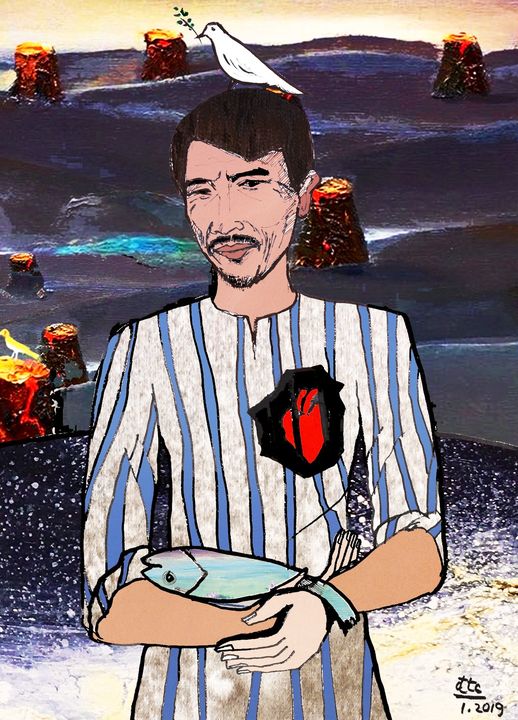
Illustration: Dinh Truong Chinh/The 88 Project.
Vietnamese authorities arrested five journalists from Facebook-based news site Báo Sạch, or Clean Newspaper, in late October for “abusing democracy and freedom to infringe on state interests.”
Mai Pham, a grassroots activist who asked to use a pseudonym to protect her safety, experienced firsthand how Facebook can impact Vietnamese citizens. A 2016 chemical spill tied to a unit of Taiwan-based Formosa Plastics on the central coast of Vietnam resulted in mass fish deaths, triggering rare protests.
Pham attended a demonstration in her hometown of Ho Chi Minh City seeking answers about the chemical spill and justice for its victims. She posted a video of the protest on Facebook, which accumulated millions of views and thousands of shares within hours. By the end of the day, she lost her account.
“[The government] will ask Facebook to shut you down, or they have a lot of online police and public commentators who will attack your account,” she said. “They will report you. Thousands of reports.”
After posting the video, Pham was followed regularly by police who monitored her movements with the assistance of security staff in her apartment building, she said.
Government internet monitoring has increased since 2018 under a Vietnamese cybersecurity law requiring global technology companies to establish physical offices. Under the statute, Facebook must locally store the data of more than 65 million users in the country.
Facing the possibility of being kicked offline in Vietnam, where the company earns annual revenue of about $1 billion, Facebook founder and CEO Mark Zuckerberg caved to government demands and agreed to site monitoring and increased censorship of anti-state posts.
“We do restrict some content in Vietnam to help ensure our services remain available,” the Meta spokesperson said. “Our goal is to keep our services running in Vietnam so we can provide a space for as many people as possible to express themselves, connect with friends and run their business.”
Pham said Facebook’s Vietnam capitulation signals the company’s prioritisation of profit over human rights: “Facebook [is a] perpetrator, they support the government to censor whatever the dissidents say. They delete the information that people raise even though it supports human rights.”
“The CEO just wants more and more money,” she said.
Allowing government monitoring threatens citizens who use the platform to criticise the Communist Party and its leaders, said Ha Hoang Hop, a senior fellow in Vietnamese Studies at the ISEAS-Yusof Ishak Institute.
“Facebook must be responsible for those censures that go against international law and against the UN Convention on Human Rights,” Hop said. “I hope that Facebook will uphold the rights to the freedom of expression of the Facebookers, and the Facebookers will defend their rights.”
Democracy advocate Nguyen noted that Facebook’s standing as Vietnam’s largest medium for free expression carries an inherent duty.
“I think the company has a responsibility to not become another tool of oppression,” Nguyen said.
This article was updated on 13 December 2021 to correct an inaccurate description of information shared by MERHROM.

